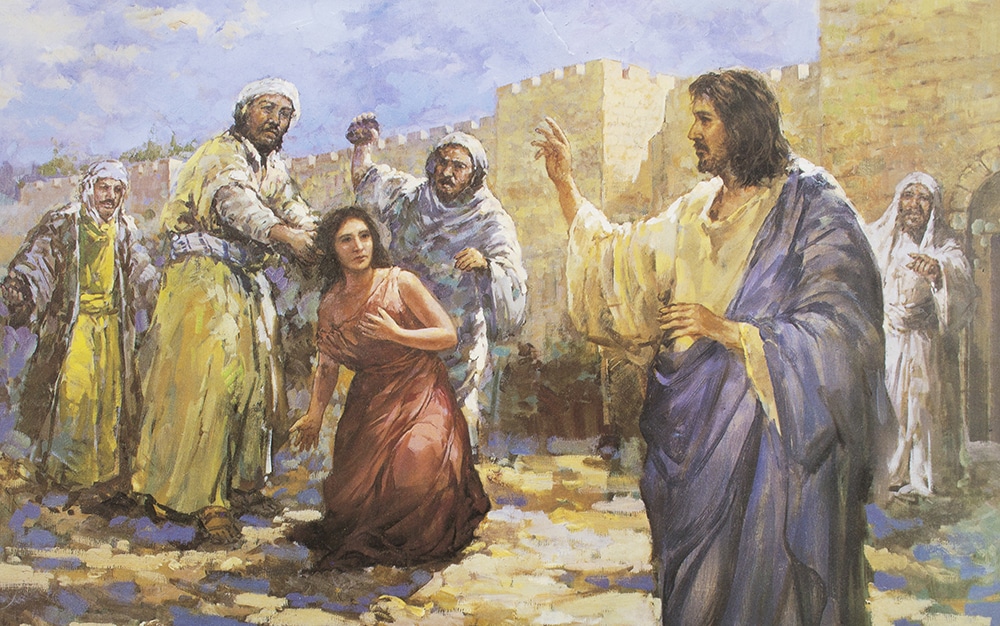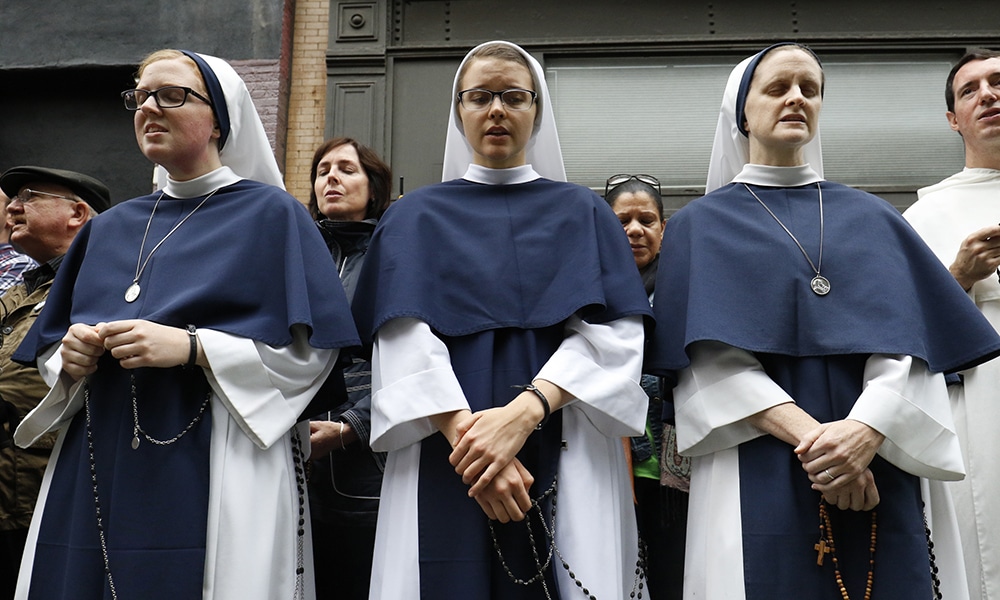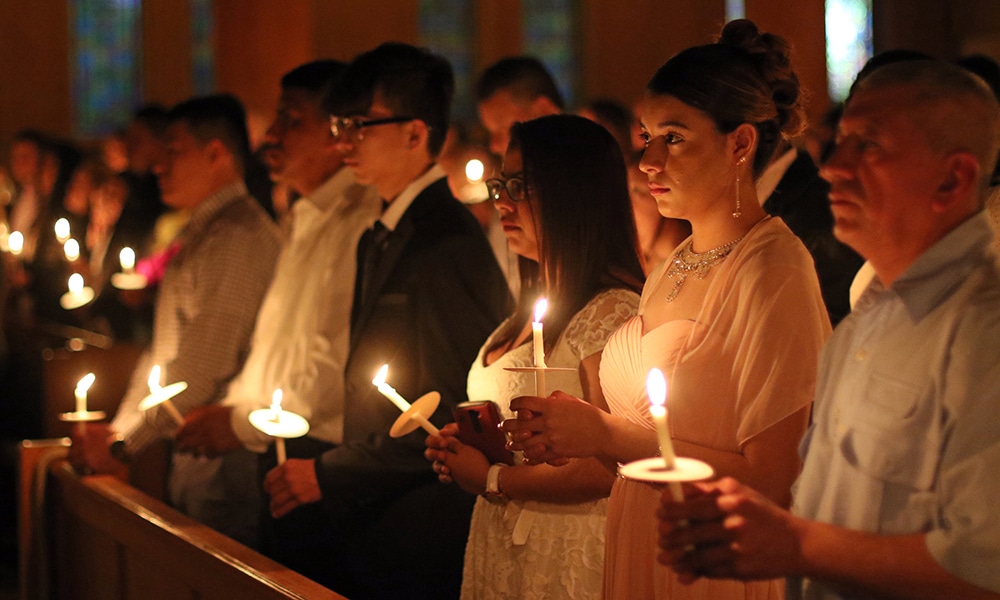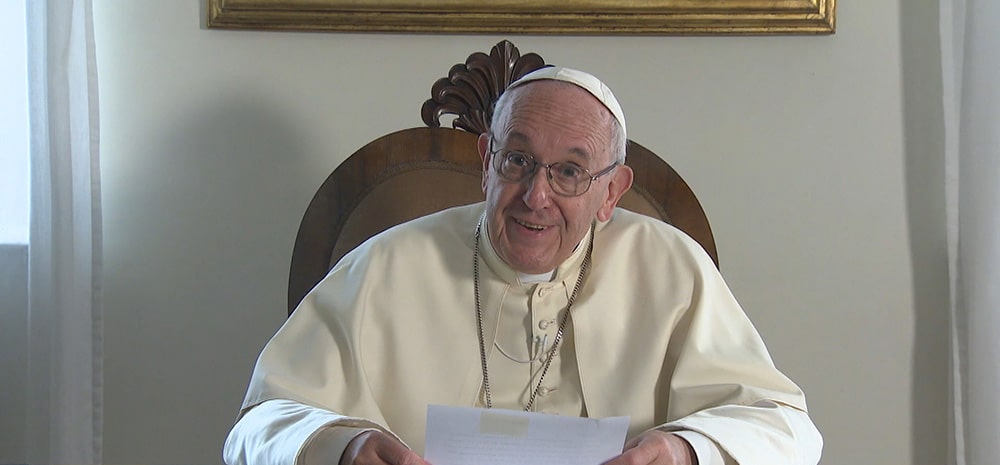 God does new things. This is the presumption that drives the narrative of the Scriptures. In the prophet Isaiah, we hear God announce to Israel, “Remember not the events of the past, the things of long ago consider not; See, I am doing something new!” (Is 43:18).
God does new things. This is the presumption that drives the narrative of the Scriptures. In the prophet Isaiah, we hear God announce to Israel, “Remember not the events of the past, the things of long ago consider not; See, I am doing something new!” (Is 43:18).
The God who has rescued Israel from slavery in Egypt, who led them through the Red Sea, will now lead them out of captivity. This God will take them back through the desert — the trysting place between God and Israel in the Book of Exodus — transforming a barren land into a fertile one. They will drink from streams in the desert, quenching their thirst in a seemingly inhospitable land.
God does new things.
The tragedy of the woman caught in adultery in the Gospel of John is the refusal of the gathered crowd to remember the newness of God.
The woman who is caught in adultery is thrown into the middle of the crowd. She is treated not as a human being but as a test for Jesus. Will Jesus follow the Law of Moses or show mercy?
| Fifth Sunday in Lent – April 7, 2019 |
|---|
|
IS 43:16-21
PS 126:1-2, 2-3, 4-5, 6 PHIL 3:8-14 JN 8:1-11 |
The scribes and the Pharisees have forgotten that God does new things. That this woman, caught in adultery, could change. And they have forgotten this even though they are themselves members of a sinful nation.
Perhaps one of the men in the crowd was involved in the act of adultery. But even if this wasn’t the case, do they not remember confessing unto God in Psalm 51: “A clean heart create for me, God; renew within me a steadfast spirit” (v. 12).
God does new things. And the scribes and the Pharisees refuse to acknowledge this.
Jesus, the Word made flesh, does. He turns to the woman and offers a new hope, a new promise of life. Yes, her life has been saved at a literal level. She will not be stoned.
But there’s an even greater horizon of hope offered by Jesus to this woman. In his tender, transcendent mercy he offers the hope of a new life, “Go, and from now on do not sin any more” (Jn 8:11).
God does new things.
In the remaining days of Lent, we have to ask ourselves whether we really believe in the newness of God.
Do we believe that the sinner — whether that is someone else or one’s self — can start again?
Do we believe that the hungry and the thirsty, the immigrant forgotten by a society grown cold to love, can experience the mercy of God through a cup of cold water?
Do we believe that the unborn child can be protected from a death-dealing society, that each creature can be recognized as full of dignity?
Do we believe in the newness of God?
I suspect that the great temptation of Christians in our age is to lower the horizon of hope. We want just enough people to come to Mass that we won’t close the parish. We want to grow our school. That’s enough.
But God wants more. God wants to do a new thing. And thus we have to set the bar higher for the Church.
The bar is Jesus Christ, the one who has entered into the darkness of this age, judging it. The bar is Jesus Christ, the one who has conquered death by loving unto the end on the cross. The bar is Jesus Christ, who is now wed to the Church, presenting the first fruits of a renewed humanity for the world to behold.
God does new things.
Are we ready?
Timothy P. O’Malley, Ph.D., is managing director of the McGrath Institute for Church Life.







